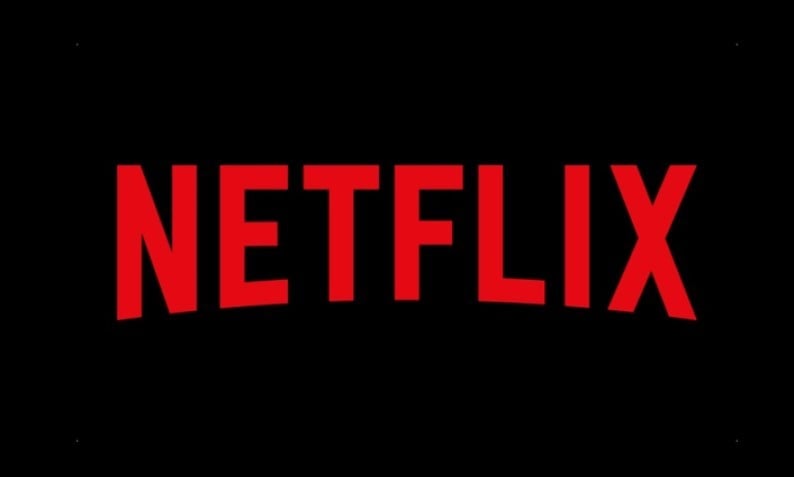Netflix: Piracy is Difficult to Compete Against and Growing Rapidly * TorrentFreak
Netflix believes that it's difficult to compete against the free entertainment piracy offers. Not only that, it's growing rapidly too.
Netflix: Piracy is Difficult to Compete Against and Growing Rapidly
February 4, 2024 by Ernesto Van der SarHOME > PIRACY >
As a member of ACE and the MPA, Netflix is at the frontline of the global battle against online piracy. The company doesn't often address the subject directly but in a recent SEC filing, Netflix writes that it's difficult to compete against the free entertainment piracy offers. Not only that, it's growing rapidly too.

The idea was to take market share away from piracy sites, by offering a legal and more convenient streaming platform.
Initially, this seemed to work. Netflix amassed hundreds of millions of subscribers, some of whom left their piracy habits behind. However, as the ‘streaming wars’ turned legal and convenient streaming platforms into isolated and pricey content silos, momentum started to shift.
In recent years piracy started to grow again, including in well-served markets such as the United States. In theory, this may help Netflix in its battle with other legal platforms, but that’s a consolation prize if the war against piracy is lost.
There are no concrete signs that Netflix is crumbling, but piracy is a concern. This isn’t breaking news; piracy has been repeatedly highlighted as tough competition in the company’s 10-K filings at the SEC.
Piracy is a Tough Competitor
Earlier this week, Netflix submitted its latest 10-K filing. The mandatory document provides information that helps investors to gather key information about publicly traded companies. In the “competition” section of the annual overview, piracy is again mentioned several times.
Netflix explains that the online video landscape is a competitive business. New services and distribution models could impact the business of the leading video streaming platform. This includes legal competitors as well as piracy.
“The various economic models underlying these channels include subscription, transactional, ad-supported and piracy-based models. All of these have the potential to capture meaningful segments of the entertainment video market,” Netflix writes.
These are in part standard disclosures, as every company faces competition. However, Netflix believes that online piracy is particularly compelling because it’s free for consumers. That makes it very hard to compete against.
“Piracy also threatens to damage our business, as its fundamental proposition to consumers is so compelling and difficult to compete against: virtually all content for free,” Netflix writes.
Growing and Hard to Stop
When Netflix launched, its on-demand streaming experience was more convenient than most pirate sites. At the time, torrent sites were dominant but still required users to have some technical knowledge and the patience to wait for content to download.Today, most pirate sites use on-demand streaming, taking away a major edge for Netflix. And because piracy is so compelling for consumers, it is growing rapidly worldwide, threatening legal services.
“In light of the compelling consumer proposition, piracy services are subject to rapid global growth, and our efforts to prevent that growth may be insufficient,” Netflix notes.
“If we are unable to successfully or profitably compete with current and new competitors, our business will be adversely affected, and we may not be able to increase or maintain market share, revenues or profitability.”
(Un)authorized Copying?
The concerns voiced by Netflix are real, but the company isn’t near its demise. These 10-K filings are supposed to detail risks and Netflix is not the only company mentioning piracy as a potential threat.A Netflix Competitor

When we started looking for similar mentions by other businesses, we stumbled upon similar concerns and, strangely enough, some identical ones. Apparently, there’s quite a bit of copying going on, as SEC filings from several companies include identical passages.
Netflix: “In light of the compelling consumer proposition, piracy services are subject to rapid global growth”
Triller Corp: “In light of the compelling consumer proposition, piracy services are subject to rapid global growth”
FuboTV: “In light of the compelling consumer proposition, piracy services are subject to rapid global growth”
Redbox Entertainment: “In light of the compelling consumer proposition, piracy services are subject to rapid global growth”
IMAQ: “In light of the compelling consumer proposition, piracy services are subject to rapid global growth”
CuriosityStream: “In light of the compelling consumer proposition, piracy services are subject to rapid global growth”
We don’t know where these references originate. Netflix has mentioned it for a while, that’s for sure, and apparently, the use of this language is widespread and subject to rapid global growth.
It’s clear, however, that piracy is a concern for Netflix. While Reed Hastings wasn’t worried about piracy a decade ago, the company now spends millions of dollars tackling the problem.
The streaming giant joined the MPA a few years ago and is also a member of anti-piracy coalition ACE. In addition, Netflix also has an in-house anti-piracy department that keeps an eye on piracy threats.


 yes it is
yes it is

 No shyt...
No shyt...
 ....
....